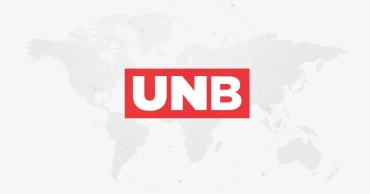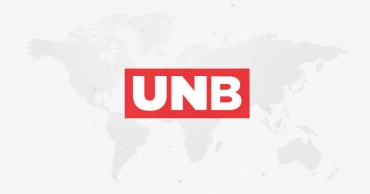budget document
Govt aims to bring budget deficit back within 5% by FY25
The government of Bangladesh is projecting to rein in the budget deficit back within 5 percent of GDP by 2024-25 fiscal from the current 5.5 percent.
The budget deficit for 2023-24 fiscal has been projected at 5.1 percent, according to an official budget document.
The revised deficit in fiscal 2021-22 was 5.1 percent. The deficit for 2020-21 fiscal was 3.7 percent.
The current deficit remains higher than the norm prior to the outbreak of the Covid-19 pandemic: the deficit averaged 3.5% of GDP in FY15-FY19.
Read more: ADB provides assurances of $2 billion in budget support
According to the document, the size of the country’s GDP for the running 2022-23 fiscal is Tk44,49,959 crore.
It will be Tk 49,91,337 crore for the next 2023-24 fiscal while Tk 56,06,269 crore for 2024-25 fiscal.
The document said that to mitigate the budget deficit the government will bank on the internal resources.
In the running 2022-23 fiscal 3.3 percent of the GDP will come from the internal resources and 2.4 percent of the GDP will come from the banking sector.
Read more: Budget’s highest priority is to tame inflation: PM
The external financing will contribute some 2.2 percent of the GDP in the running fiscal, as per the document.
For the 2023-24 fiscal 2.9 percent of the GDP will come from the internal resources and 2.3 percent of the GDP will be from the banking sector.
The external financing will contribute some 2.2 percent of the GDP in the current fiscal.
For 2024-25 fiscal 2.8 percent of the GDP will come from the internal resources and 2.3 percent of the GDP will come from the banking sector.
Read more: Food production, price control should get prioritised in budget: Dr. Debapriya
The external financing will contribute some 2.3 percent of the GDP in the running fiscal, as per the document, which says the economic activities of the country suffered a serious setback from March 2020 due to the spread of Coronavirus.
While the economy was turning around the time of the Russia-Ukraine war, the sanctions and counter-sanctions caused another blow to the recovery as the world economy stared at another recession.
The document mentioned that a potentially huge global supply-side shock may reduce growth and push up inflation, affecting the post-COVID-19 recovery.
Russia’s invasion of Ukraine and the economic sanctions on Russia that followed put global energy supplies at risk.
Read More: Govt struggles to lift tax-GDP ratio to double digits
It mentioned that Russia supplies around 10 percent of the world’s energy, including 17 percent of its natural gas and 12 percent of its oil.
The jump in oil and gas prices will add to industry costs and reduce consumers’ real income.
Record inflation is currently evident in a number of countries, including Bangladesh.
Twelve-month average inflation in the country was 5.6 percent for FY21. Considering the inflation scenario of trade partners, inflation projection for FY22 is as high as 5.8 percent and 5.6 percent for FY23.
Read More:IMF suggests updating GDP report every 3 months
On the other hand, the point-to-point inflation rate in Bangladesh is moving higher to 6.29 percent on March 22 which was 5.56 percent in the previous year.
3 years ago
Govt. seeks higher growth for lower poverty, says budget document
A higher economic growth remains high on the government’s agenda for reducing poverty and inequalities that will lead to improved living standard of the low-income people, according to a document in the upcoming national budget.
To achieve this goal, the government is seeking to bring more vulnerable groups under the social safety network, create local and overseas employment, increase microcredit and skills training.
These sectors will receive higher attention in the 2021-22 fiscal budget, said the document.
It said that one of the basic commitments of the government is to achieve higher economic growth through sustainable and inclusive development.
The growth rate for fiscal 2021-22 has been set at 7.2 per cent.
In formulating the budget, priority has been to implement plans for the creation of investment-friendly environment, promotion of export, business-friendly tax management, reforms in the financial sector and increase public investment through Tk 225,324-crore Annual Development Programme.
Also read: SANEM survey: Population below poverty line doubled, extreme poor trebled in 2020
The aim is to achieving higher growth.
In the ADP, the focus is on strengthening the health sector infrastructure, establishing the social safety net and removing infrastructural bottlenecks to promote private sector investment.
Another important goal of the government will be to ensure timely implementation of all nationally important projects including mega projects in the infrastructure sector to sustain the higher growth rate.
Also read: Nations must work together to reverse setbacks to poverty reduction: WB
4 years ago



